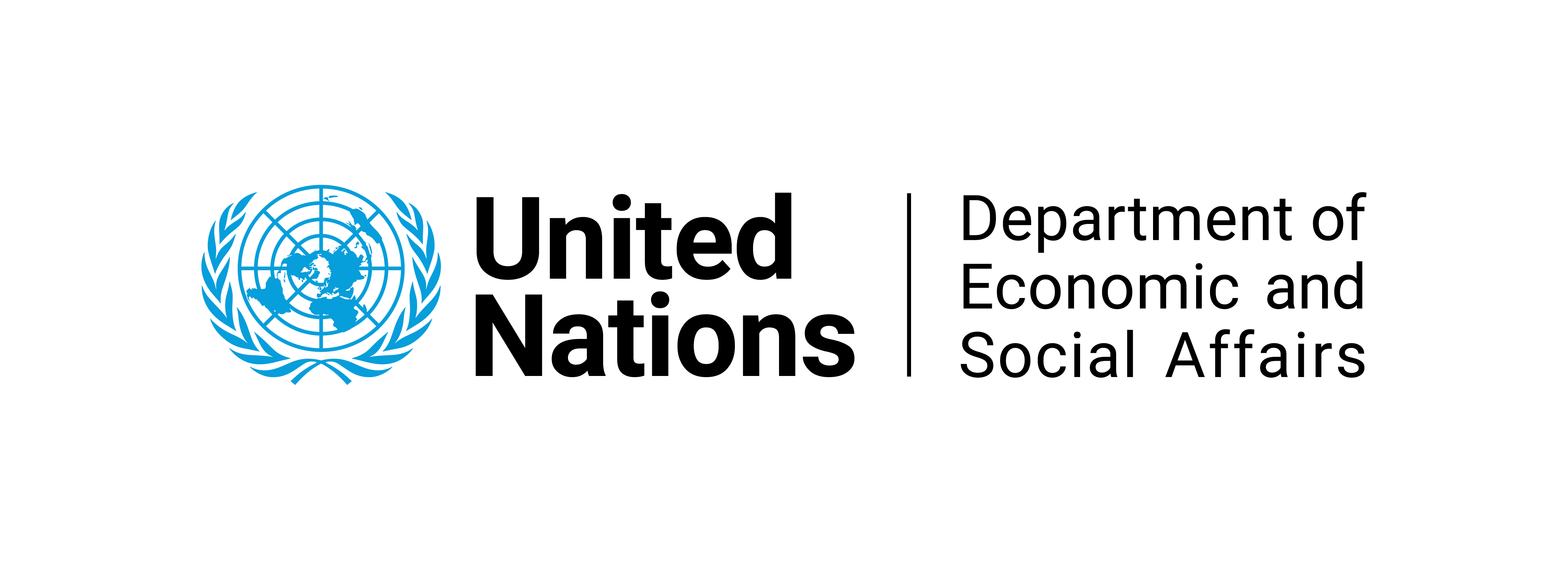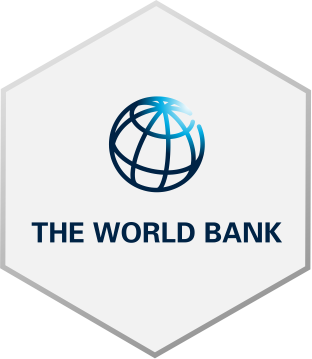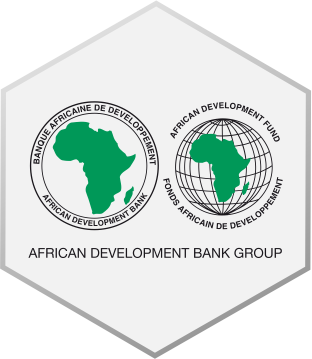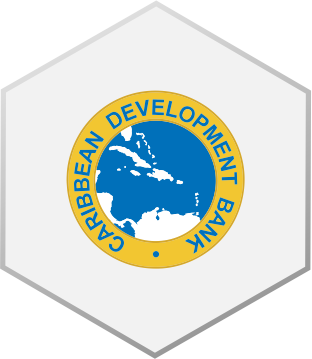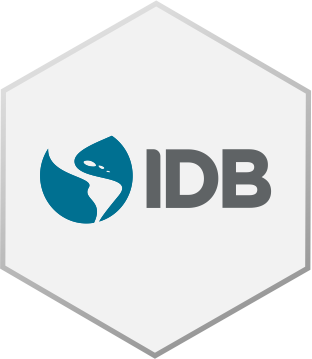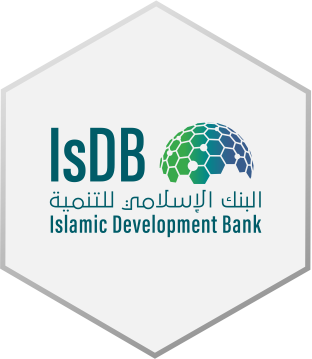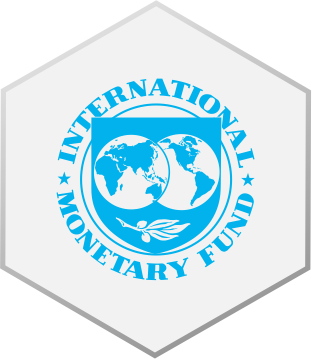17.8 Statistical Programmes of International Financial Institutions (IFIs)#
17.8.1 Overview#
International financial institutions with statistical programmes include multilateral development banks and central banks. Multilateral development banks (MDBs) support the national, regional, and international statistical systems to improve the scope and quality of basic data and statistics.
The IMF and the World Bank are also specialized agencies in the United Nations system. For purposes of this Chapter, their statistical mandates are presented in this section.
World Bank and the International Monetary Fund (IMF) are also referred to as Bretton Woods institutions. They were set up at a meeting of 43 countries in Bretton Woods, New Hampshire, USA in July 1944 to build a framework for international economic cooperation. The original Bretton Woods agreement also included plans for an International Trade Organization (ITO). Instead, the General Agreement on Tariffs and Trade (GATT) was established in 1948 as a provisional agency that provided the rules for much of world trade until the World Trade Organization (WTO) was created in 1995. Whereas the GATT mainly dealt with trade in goods, the WTO and its agreements also cover trade in services and intellectual property.
In 2013, a memorandum of understanding on cooperation in statistical activities was signed by the heads of regional MDBs, the International Monetary Fund, the World Bank and the United Nations—now known as the MoU Group. The objective of this Group is to enhance collaboration so as to support the strengthening of statistical capacity in the Member States and facilitate the sharing of data, tools, standards and analysis to improve statistics for the monitoring of development outcomes, including those of the 2030 Agenda for Sustainable Development.
The IFIs (cards) included in this section are the following:
Multilateral Development Banks
Central Banks
Other IFIs
17.8.2 Multilateral Development Banks#
World Bank (WB)
The WB Group is one of the world’s largest sources of funding and knowledge for developing countries. Its five institutions share a commitment to reducing poverty, increasing shared prosperity, and promoting sustainable development.
The WB is mandated to strengthen member countries’ capacity to produce and use statistical information, including work across the WB’s Development Data Group (DDG), sectoral Global Practices, and Regions. In particular, this support includes providing high-quality advice and support for clients and partner organizations to develop new statistical methods, data collection activities, analytics, and use across the full data value chain. This particularly includes collecting data (or helping others collect data) according to international standards; then processing, analysing, disseminating, and visualizing data to enable use by researchers, policy analysts, policymakers, and the public at large.
The DDG is also mandated to compile external debt statistics on 123 World Bank borrowing countries and produce the income classifications of these economies. It also manages the International Comparison Program global partnership producing key indicators on the size of the economies and their relative price levels.
Likewise, WB is a leader in open data for public goods, which draws more than 30 million unique users every year to the Bank’s Open Data platform (🔗). The DDG is also responsible for the Secretariat of WB’s Development Data Council, which provides data governance support and coordination for the Bank’s vision, priorities and activities related to development data. The DDG is further mandated to improve country capacity though technical expertise, including implementing the system of national accounts, household surveys, and debt statistics.
African Development Bank (AfDB)
Established in 1964, the AfDB is the premier pan-African development institution, promoting economic growth and social progress across the continent. The Bank’s development agenda delivers financial and technical support for transformative projects that will significantly reduce poverty through inclusive and sustainable economic growth.
The AfDB has over the years, positioned itself as a leading institution and partner of choice for supporting statistical development across Africa. Through successive statistical capacity building programs (SCB) that provide grants for supporting statistical work in African countries, as well as co-funding with other bilateral and multilateral development partners, the Bank has contributed to notable improvements in statistical capacity over time.
Asian Development Bank (ADB)
Established in 1966, ADB envisions a prosperous, inclusive, resilient, and sustainable Asia and the Pacific, while sustaining its efforts to eradicate extreme poverty in the region. ADB assists its members and partners by providing loans, technical assistance, grants, and equity investments to promote social and economic development.
Its statistical work aims to contribute to knowledge generation in ADB, through the use of statistics and data innovation in its institutional priorities and operational effectiveness in developing member countries. ADB initiated its statistical capacity building assistance in 1971 and since then has engaged through technical assistance grants to its developing member countries to improve their capacity in institution building, technical skills training, data production, methodological development, and innovation.
Caribbean Development Bank (CDB)
The Caribbean Development Bank (CDB) is a financial institution that helps Caribbean nations finance social and economic programs in its member countries. CDB was established by an Agreement signed on October 18, 1969, in Kingston, Jamaica, and entered into force on January 26, 1970. With headquarters located in Bridgetown, Barbados, CDB has 19 borrowing member countries and nine non-borrowing members.
The Caribbean Development Bank invests in the economic and social development of its Borrowing Member Countries. These investments, geared towards poverty reduction, span sectors such as agriculture and rural development, energy, and water and sanitation.
The Bank has several programmes through which it serves its Borrowing Member Countries. The programmes provide technical assistance and grant funding, among other things, and in some cases, are funded in partnership with other development agencies.
Inter-American Development Bank (IaDB)
The IaDB works to improve lives in Latin America and the Caribbean. Through financial and technical support for countries working to reduce poverty and inequality, the Bank helps to improve health and education, and advance infrastructure. Their aim is to achieve development in a sustainable, climate-friendly way. With a history dating back to 1959, today the Bank is the leading source of development financing for Latin America and the Caribbean. It provides loans, grants, and technical assistance; and conducts extensive research.
The Bank’s current focus areas include three development challenges – social inclusion and equality, productivity and innovation, and economic integration – and three cross-cutting issues – gender equality and diversity; climate change and environmental sustainability; and institutional capacity building and the rule of law.
Islamic Development Bank (IsDB)
The mission of the IsDB is to promote comprehensive human development, with a focus on the priority areas of alleviating poverty, improving health, promoting education, improving governance and bringing prosperity to the people.
The following objectives guide IsDB’s statistical work: facilitate the strengthening of statistical capacities of member countries, especially the Least Developed Member Countries, in collaboration with other international agencies and donors to help monitor socio-economic development and progress; maintain an updated statistical database of Macroeconomic and social indicators covering IsDB Member Countries; and data acquisition, processing, analysis and dissemination from different internal and reliable external sources.
17.8.3 Central Banks#
European Central Bank (ECB)
The ECB is a supranational organization of the European Union member states. The ECB and the member states’ national central banks make up the European System of Central Banks (ESCB). The Eurosystem consists of the ECB and the national central banks of the 17 Member States that have introduced the euro. The ECB is responsible for the Eurosystem single monetary policy and contributes to the smooth conduct of policies relating to the prudential supervision of credit institutions and the financial system’s stability. The ECB has legislative powers in the areas within its mandate. Its regulations are binding in their entirety and directly applicable in all countries of the euro area.
ECB statistics support the institution’s monetary policy, financial stability and supervisory functions, as well as other tasks of the Eurosystem and the ESCB (🔗). Article 5 of the ESCB/ECB Statute sets out the ECB’s responsibilities in the area of statistics.
European statistics are developed, produced and disseminated by both the ESCB and the European Statistical System. The division of labour between the Directorate-General Statistics of the ECB and Eurostat is laid down in a Memorandum of Understanding on Economic and Financial Statistics (🔗).
Eastern Caribbean Central Bank (ECCB)
The ECCB regulates the availability of money and credit; promotes and maintains monetary stability; promotes credit and exchange conditions and a sound financial structure conducive to the balanced growth and development of the economies of the territories of the eight participating Governments; and, actively promotes through means consistent with its other objectives the economic development of the territories of the participating Governments.
Its core statistical mandate is to compile, transform, analyse and disseminate monetary and financial statistics and macroeconomic data for the Eastern Caribbean Currency Union and to provide high quality, high-frequency statistics based on international standards, through a fully integrated, web-based, interactive statistical solution.
17.8.4 Other international financial institutions#
International Monetary Fund (IMF)
The IMF was conceived in July 1944 at the United Nations Bretton Woods Conference in New Hampshire, United States. The 44 countries in attendance sought to build a framework for international economic cooperation, including to avoid repeating the competitive currency devaluations that contributed to the Great Depression of the 1930s.
The IMF’s primary mission is to ensure the stability of the international monetary system—the system of exchange rates and international payments that enables countries and their citizens to transact with each other. This facilitates international trade and promotes employment and sustainable economic growth, thereby helping to reduce global poverty.
The IMF Statistics Department supports member country statistical operations, disseminates member country data and is responsible for the methodological development of the following statistical domains:
Government Finance Statistics (🔗)
Balance of Payments and International Investment Position (🔗)
Monetary and Financial Statistics (🔗)
National Accounts and Price Statistics
Financial Soundness Indicators (🔗)
Financial Access Survey (🔗)
The IMF Statistics Department also oversees the IMF’s data dissemination initiatives (e-GDDS, SDDS, SDDS+), which guide member countries on the publication of economic and financial data in support of domestic and international financial stability. The initiatives encourage the dissemination of data along the following statistical categories: real sector, fiscal sector, external sector and financial sector.
Bank for International Settlements (BIS)
The BIS is owned by 62 central banks, representing countries worldwide that together account for about 95% of world GDP. The mission of the BIS, established in 1930, is to serve central banks in their pursuit of monetary and financial stability, foster international cooperation in those areas, and act as a bank for central banks.
BIS statistics on the international financial system shed light on issues related to global financial stability. Compiled in cooperation with central banks and other national authorities, they are designed to inform analysis of financial stability, international monetary spill overs and global liquidity.
